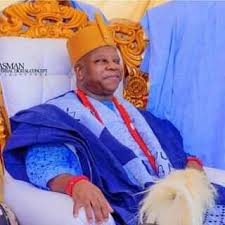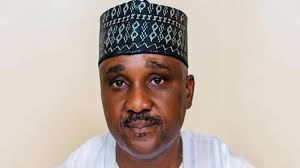
When news broke that the Apetu of Ipetumodu, Oba Joseph Olugbenga Oloyede, had been sentenced to four years in a U.S. prison for his role in a $4.2 million COVID-19 fraud, the reaction from Nigerians was swift, divided, and — unsurprisingly — soaked in ethnic tensions, political undertones, and national frustration.
This was not just any scandal. A traditional ruler, a symbol of cultural heritage and communal pride, had been exposed on the global stage for participating in cyber fraud during a global pandemic. Yet, for many Nigerians, it wasn’t just about crime — it was about which part of the country the criminal came from, and what that meant for how loudly, or quietly, the news was received.
“If He Were Igbo…” — The Ethnic Mirror
A prominent theme in the reactions was the perception of ethnic bias in how Nigerians respond to corruption. Several commenters pointed out that if the monarch had been from the South-East, the story would have set the internet ablaze.
“Just imagine how the ronus would have tagged, broadcasted and connected on this if the king was from South-East,” wrote Shola Ajibade, while Edison Iwuanyanwu echoed, “Internet would have been ablaze by now if this monarch is from the Igbo extraction.”
This sense of double standard reflects a broader national frustration — that some tribes are vilified publicly, while others are protected by deafening silence. The accusation was clear: Yoruba leaders are treated with kid gloves, while Igbo personalities are harshly scrutinized, especially when it comes to criminal activity.
Humor, Sarcasm, and the Tragedy of Normalized Corruption
In true Nigerian fashion, many reactions were laced with sarcasm, dark humor, and biting wit — tools that citizens often use to cope with what feels like a perpetual cycle of shame.
“He is now qualified to run for office in Nigeria,” David Aluga quipped.
“Another Yoruba legend just emerged,” Blessed Paul added mockingly.
“Oba the 419 king,” wrote Irechukwu Nnamdi, highlighting the absurdity of a royal figure caught in international cybercrime.
Many pointed to Hushpuppi, the infamous Nigerian fraudster also from the Southwest, and joked that the monarch was perhaps his “father” or “elder in Yahoo affairs.”
“Go and meet your younger brother Hushpuppi there,” said Oderinde Sunday, while Immer Nuel crowned the monarch “the king of Yahoo.”
These comments are not just jokes — they reflect a deep-seated disillusionment. When citizens react to a monarch’s criminal conviction with laughter, it speaks volumes about how normalized elite corruption has become in Nigeria.
The Painful Truth: Culture for Sale
Some voices cut through the noise with sobering reflections on how traditional institutions have been compromised by wealth and status.
“This happened when afobajes believe more in money than integrity,” said Yom Yem.
“People are monarchs and we expect them to be role models, only to have this kind of record,” lamented Mmaduabuchi John Obinelo.
“A supposed role model turned bad example,” added Kayode Olumide.
There’s a growing awareness that kingship in Nigeria is no longer solely about lineage or community service — it’s about influence, connections, and money. And when culture is sold to the highest bidder, integrity is often the first casualty.
The Call for Accountability — Abroad and at Home
Several commenters contrasted the swift American justice system with Nigeria’s broken judicial framework. In a country where political elites and monarchs are rarely held accountable, the fact that a U.S. court could jail a Nigerian king raised painful questions.
“If the case was heard in our own kangaroo courts, they would tell him to pay ₦50k bail and go and sin no more,” wrote Abdulrahmon Ishola.
“In Nigeria, this matter would have been swept under the carpet,” Prime Kvng added.
Indeed, many noted that American justice has once again done what Nigerian systems consistently fail to do — treat powerful individuals as equal under the law.




